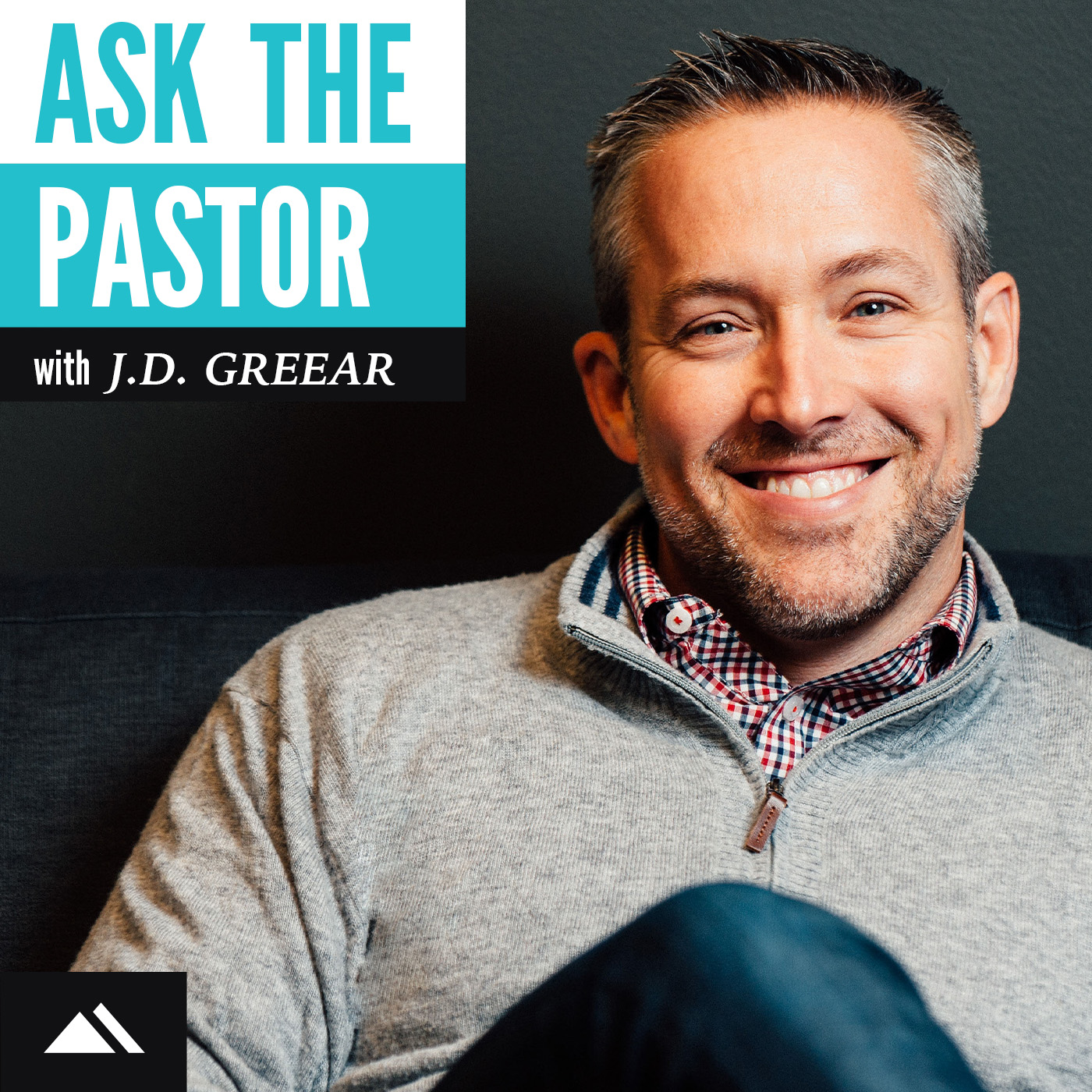

Ask the Pastor with J.D. Greear
J.D. Greear
Ask the Pastor with J.D. Greear is a weekly podcast that answers tough questions and tackles relevant issues in a way that is filled with grace, understanding, and wisdom from God’s Word. Hosted by Matt Love.
Episodes
Mentioned books

Sep 23, 2024 • 26min
Gospel & Politics: Ben Watson
This week on Ask the Pastor features a conversation between Pastor J.D. Greear and Ben Watson. Watson is a former NFL tight end as well as a writer, speaker, and activist.

Sep 16, 2024 • 37min
Gospel & Politics: Ed Stetzer
Ask the Pastor is continuing our Gospel & Politics series. This week features a conversation between Pastor J.D. Greear and Dr. Ed Stetzer. Stetzer is a leading thinker in his field and has planted, revitalized, and pastored churches; trained pastors and church planters on six continents; earned two master’s degrees and two doctorates.

Sep 9, 2024 • 26min
Gospel & Politics: Rebecca McLaughlin
This week's Ask the Pastor episode kicks off our brand new series, Gospel & Politics. This series will feature Pastor J.D. with other respected leaders talking about how we can integrate both the gospel and politics into our lives this election season.

Aug 26, 2024 • 12min
Greatest Hits: Is There Such a Thing as an “Unanswered Prayer?
In this final edition of Ask the Pastor's Greatest Hits, Pastor J.D. talks about the pain of unanswered prayer and the realities of prayer for the Christian.
A glimpse inside this episode:
This is a tricky question. I’ve often heard that behind every question is a questioner. When we’re dealing with unanswered prayer, the Bible has a lot to say. But the heart of the questioner matters a lot here. More often than not, when someone asks me about unanswered prayer, it’s not an academic question for them. It’s a question coming from a place of deep hurt. They asked God for healing in their life—and it didn’t happen. They asked God to reconcile a relationship—but the other person still left. They asked God to work in their kid’s life—but it’s been years and there’s no sign of that child returning.
So first off, I want to say, when it seems like God isn’t answering prayer, that’s legitimately painful. It makes us question God’s goodness. It makes us wonder if he’s real. Those are the kinds of doubts that all of us, at one point or another in our walk of faith, deal with. I’ve wrestled with them. Every great saint has wrestled with them. So if you’re in that spot, don’t despair. Walk through that difficult question with God.
And here, I think, is the best road forward: If we’re walking in fellowship with the Spirit, there isn’t technically any such thing as unanswered prayer. (Now, this is different than the way God responds to those outside of Christ: He may hear them, but he hasn’t promised to.) With believers, though, the Apostle John reminds us, “This is the confidence we have before him: If we ask anything according to his will, he hears us. And if we know that he hears whatever we ask, we know that we have what we have asked of him” (1 John 5:14–15). If we are walking with God, we can be sure we have his ear.
Whatever your situation, whatever your request, if you are God’s child, he’s listening.
Now, does that mean he says “Yes” to everything you ask? Of course not. At times, since God’s wisdom is so much greater than our own, he re-directs our answer. Or he sometimes tells us to wait. Or sometimes he simply says, “No.”
But saying “No” doesn’t mean he’s being cruel. As Jesus taught, a good father gives his children food like eggs and fish, not dangerous animals like scorpions and snakes (cf. Luke 11:12–13). The point is that even earthly parents withhold things from their children—but that withholding is a result of their love, not a lack of it.
Sometimes the exercise of God’s love means he gives us what we would have asked for if we knew what he knew. (I think I first heard that from Tim Keller.) What feels like unanswered prayer is actually God answering according to the wisdom and love of the Father.

Aug 19, 2024 • 11min
Greatest Hits: Why Aren’t YOU a Missionary?
In this edition of Ask the Pastor's Greatest Hits, Pastor J.D. shares how God called him to the mission field before calling him to be a pastor of a church that sends and supplies the mission field in extravagant ways.

Aug 12, 2024 • 13min
Greatest Hits: How Do We Live in the World but Not of the World?
In this edition of Ask the Pastor's Greatest Hits, Pastor J.D. talks how to live in the world but not of the world.

Aug 5, 2024 • 11min
Greatest Hits: Is Marijuana Ever OK for Christians to Use?
In this edition of Ask the Pastor's Greatest Hits, Pastor J.D. talks about whether the legal use of marijuana is wise or helpful for Christians.

Jul 29, 2024 • 11min
Greatest Hits: What Do You Do if You Find Out About Sexual Abuse Situations?
In this edition of Ask the Pastor's Greatest Hits, Pastor J.D. shares four important things to keep in mind when responding to instances of sexual abuse.

Jul 22, 2024 • 12min
Greatest Hits: Public school, private school, or homeschool?
Pastor J.D. talks about some key advantages and disadvantages to each type of schooling and how Scripture guides our decision-making.

Jul 15, 2024 • 14min
Greatest Hits: Is It OK to Get Divorced?
In this week's episode of Ask the Pastor, we're continuing with our Greatest Hits series and Pastor J.D. answers if it's ever OK to get a divorce.


